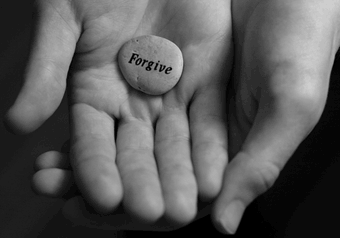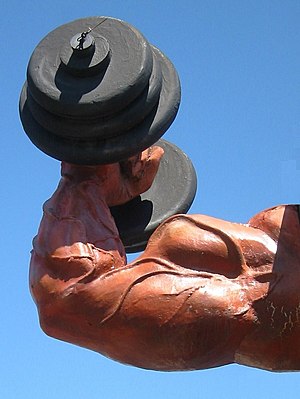Welcome to the Carnival of MS Bloggers, a bi-weekly compendium of thoughts and experiences shared by those living with multiple sclerosis.
Disney World, Jack Osbourne, a Big of Luck,
and Doctors Beyond Reproach?
and Doctors Beyond Reproach?
Relenting and Renting
by Laura at Inside MyStory
by Laura at Inside MyStory
Never do I want to be constrained to a wheelchair. Yes, I know, neither do you. None of us do, but living with Multiple Sclerosis, it is a possibility that isn’t hard to imagine. I took a trial run at it last week and came away with a renewed appreciation of being ambulatory. It was vacation week, and I had agreed to go to Orlando and the Mouse World with our son and his family. The thinking was being late in May, the weather would still be reasonable. So much for our thinking – there was some flaw in the plan, because Mother Nature cranked up the thermostat and we had temperatures in the 90’s every day.
Heat sensitivity is a fairly common problem for people with MS, and I am no exception; the warmer my core temperature becomes, the less cooperative are my legs. Keep me in that type of stifling heat Florida was experiencing and I quickly resemble Quasimodo and his walking gait – step, lean, drag, shuffle. Repeat. The hotter I am, the scarier the MonSter in me looks.
We planned on five days in the assorted parks and thought we had developed a reasonable game plan. However we didn’t take into account the unusual early season crowds and did I happen to mention the heat? The money was already spent for the tickets, the granddaughters were being cooperative and so excited to be in the Kingdom that I had no choice but to forge on. The answer to getting through the finals days was something I had already thought of but had hoped to avoid –I relented and rented. A mere $12 a day and anyone can rent a wheelchair for getting around the parks. There is even a multi-day discount so I put down my plastic and paid $20 for my own wheels for the final two days of our trip.
Except for an occasional push down a hallway at a hospital, I’ve not been confined to a wheelchair, and especially not in the midst of an excited, hot, sweaty crowd, all juggling for their own spot in line or place on the curb. My adult children and husband traded off turns pushing, but my daughter did the yeoman’s share of the work and she got the workout with the stop and go, up and down aerobic nature of wheelchair pushing. The height of the chair handles appear to be made for people who are less than 70 inches in stature. My family is tall, and each one of them had to stoop slightly to push the handles.
I’ve joked many times with my husband since my diagnosis with MS that I need to work out more so I can be prepared to haul my own ass around in a wheelchair, and I learned that is no longer a joke; I could barely budge the wheels with my own arm strength. I’ve also talked about the need to lose weight, so it wouldn’t be such a chore for others to wheel me and this trip made the importance of that more evident than ever. But mainly, just like I am sure everyone with MS desires, it was a good reminder that I want to be in control, and there is no way I can do that when someone else is doing the pushing. It didn’t take me long to declare to my family that if there is ever a need for a full time chair, it will have to be an electric one that I can propel on my own. I will make them take responsibility for that choice and blame it on the fact that they are horrible pushers and each one of them clipped more than one person in the heels as we made our way through the crowds despite my warnings that they were too close or too fast or too, too, too whatever. This was from my family who regularly gripe about the seniors in the grocery story hitting into them with their food buggies.
People who regularly use a wheelchair talk about the view from that height and I can tell you it isn’t pretty. In a large, sun baked crowd, it is even worse. I could see eye-to-eye with my 7 year old granddaughter, but the body parts I saw on most everyone else was something you would hope to avoid. If the sun didn’t bake my eyes, some of the views certainly threatened to blind me. Goodness, do these people not know what they look like below the neck and especially the belt line?
It was a humbling experience to set aside my pride, take a seat, and be dependent on others to get me through the 10 hour days of amusement. While the others went off to tackle the thrill rides, I sat in my wheelchair, entertaining my 18-month old granddaughter in her stroller and couldn’t help but feel a tad bit sorry for us both that we were left behind, even though I have never been one for dips and spins and turns in an amusement park and she was not so excited with many of the rides we did manage to do. But we made the best of it – we had our laughs, danced a bit to the music, and made our own fun and I appreciated the alone time with her. even though we were surrounded by thousands of other people. Like everything else with MS, perspective factors in a major way as to how to deal with the daily differences. Being in a chair, albeit voluntarily and for a few short days, gave me new perspective and renewed motivation to not relent to my MS.
Jack Osbourne Has MS
by the MS Blogosphere
Did you read the news or watch the TV interviews discussing the recent MS diagnosis of Jack Osbourne, son of Sharon and Ozzy Osbourne? More than 100 articles have been written and shared on websites since the public announcement was release the past Sunday evening. The MS blogosphere has also discussed the news. Here is a round-up of interesting posts:
- Jack Osbourne, Newly-Diagnosed with MS: Celebrity and Disease Awareness by Lisa Emrich at MultipleSclerosisCentral.com
- Celebrities with MS: We Need More of Them by Mitch at Enjoying the Ride
- Welcome to the Club, Jack Osbourne by Laura at Inside MyStory
- you've got more than money and sense, my friend by Swisslet
- M.S. is B.S. by cubanrick at mylifeonMarS
- MS in the News by Jodi at Jodi Bean's Blog
- Adjust Your Underwear by Thanks: Management
- Osbourne's MS Discovery by Simeon at Suddenly MS
- Just Wondering and Jack Osbourne by Life Can Be Simple
by Judy at Peace Be With You
A good attitude,
success may depend on it.
So is being real.
I am no fool, see.
I know crap can just happen,
good person or not.
One can only make
the best of what life offers
and hope luck shows up.
by Thomas of BiPolar, MS, and still as handsome as ever
OK, before I begin, take a look at this piece of information here. That's fine, I'll wait. HmmmmHmmmhmmmm. Oh, good. Now in the spirit of sharing, I'd like you to know that that guy is my psychiatrist. Or was. Or still might be. I'm not sure.
First, I freely admit that everyone is presumed innocent before proven guilty. However, I always did wonder why there was a very large amount of turnover in the office. Last few years have been tough for jobs, I am aware, so I did wonder why so many young ladies were in and out of the place, unless incompetence reigned. But basically I paid my co-pay, sat in the chair, filled out the forms, and met with either the Doctor, or one of his associates. Before the associates all disappeared.
Aside from possibly having a serial killer employed, and that's the reason they had to move to their new place because there were no spots left for the bodies to be buried, it did cause one to ponder. I see a lot of physicians because of my dual diagnosis (everyone needs a hobby) and it's more than likely that at each visit the same face would greet me and discharge me. Sometimes the face was attached to the same head. There was consistency.
But not at this psychiatrist's office.
Anyway, moving on, you may have noticed in the article that this particular doctor was called on the professional carpet for having "prescribed excessive levels of medication, failed to properly monitor patients and failed to maintain accurate records." These were the alleged charges.
(Read more: http://www.timesunion.com/local/article/Psychiatrist-faces-sex-counts-3628274.php)
Now, this Doctor and I have had no personal problems, as far as I can tell, in that we worked well on trying various medications to calm the bipolar, and adjust to the new challenges of brain lesions from MS. Working also with his associates, we had a good rapport, and the improvement could be visibly seen. And for those who might have looked, this is where the 5 Keys to Mental Health came from (and No. 5 is on its way). If something needed to be changed, it was changed immediately, or if something needed to be added, it was. And I have benefited and am grateful to the practice.
But still....should I go back there? Should I recommend the practice to others?
Everyone lives with their own delusions, even well trained doctors. Within each person is a golden nugget, a true clean soul that shines. It just gets covered with personal crap, and the jewel can not get its light through the mud and gunk of life. The person needs to clean that jewel themselves. And it takes time. This doctor may have some time soon.
Last night I started looking in my health insurance guidebook for another psychiatrist, one that was, literally, closer to home. I've been fortunate that I've had the same doctors pretty much for years, and haven't had to experience the constant shuffling many patients do. In fact, my regular physician retired the same day I did. But as far as I know, none of these folks had any of the issues that are being doled out to my psychiatrist.
So how to handle this? Consider what would you do if you found out a professional individual who helps you balance your disorder/illness/life has not exactly been a shining light to others? Forgive and continue? Forgive and move on? or just move on? I am fortunate that I can.
This concludes the 117th edition of the Carnival. The next Carnival of MS Bloggers will be hosted here on July 5, 2012. Please remember to submit a post (via email) from your blog of which you are particularly proud, or which you simply want to share, by noon on Tuesday, July 3, 2012.
Thank you.











